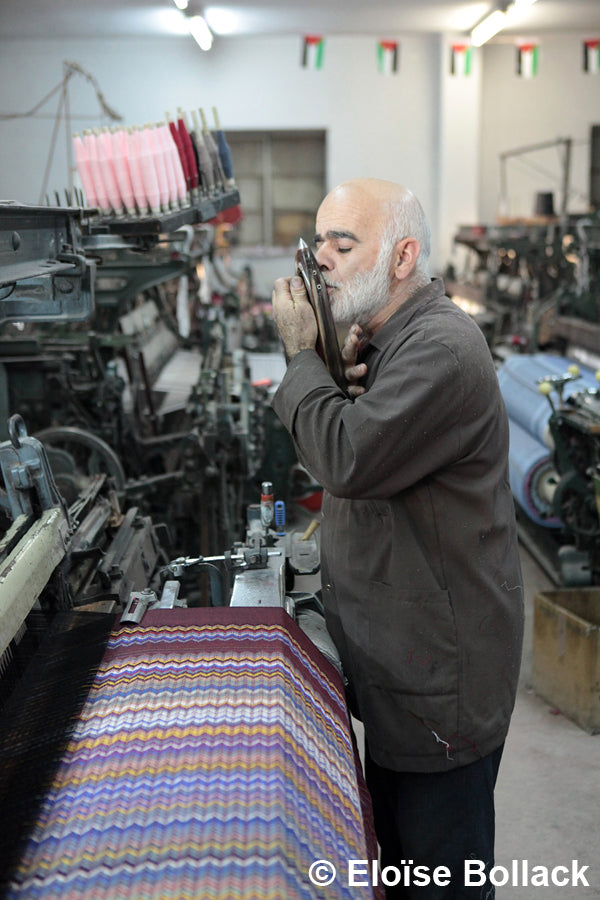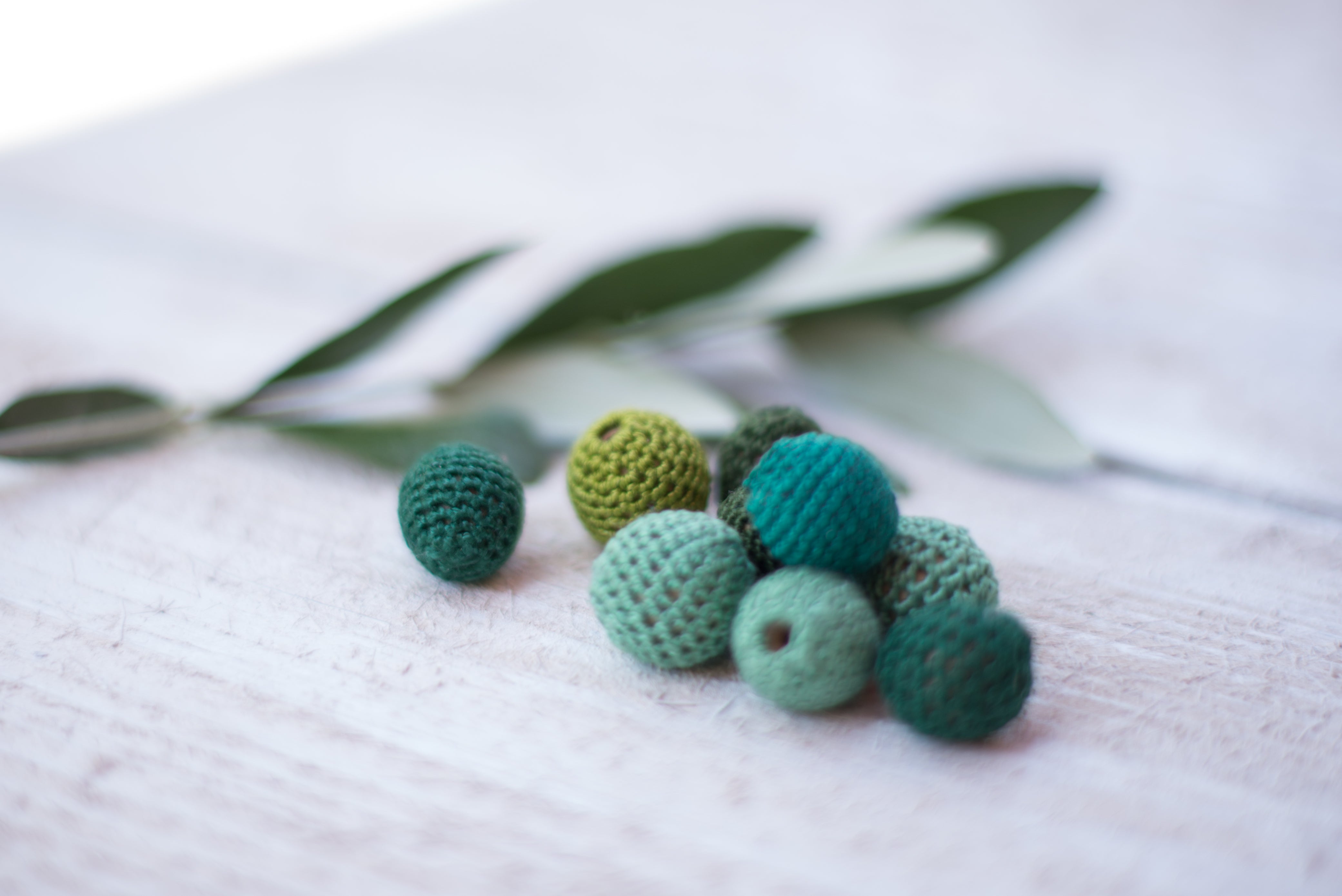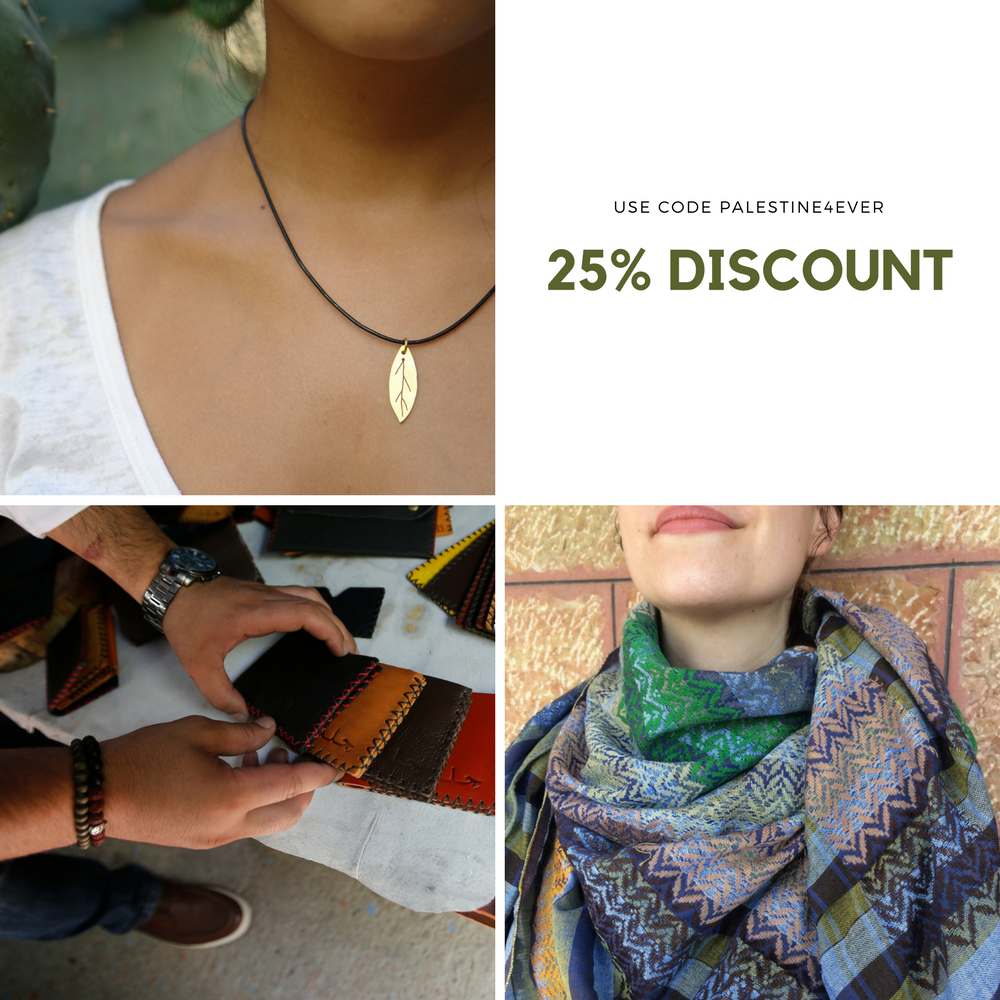
Supporting Artisans and Planting Trees in Palestine
Handmade Palestine, as I have said before and will say again, is a labor of love. In 2013 my partner Saleh Totah and I decided to take the plunge and finally make our dream a reality. We dreamt of a green space for our community that was both an arboretum, a botanical garden featuring native trees, and a conservation site. We wanted to offer our community, especially children in Ramallah and surrounding areas, a space to breath clean air, play with dirt, learn about trees, and grow our future.
We pooled all our savings and bought 10 dunnams of land at the edge of Ramallah. We registered a non profit and started investing all our time in pruning, fertilizing, moving rocks, identifying indigenous species, etc.

This is our family at Mashjar Juthour. We were being photographed for Little Olea, an original line of organic olive wood for teething babies that I sell on our site.
Soon thereafter, we found that environmental work is nearly un-fundable. All our dozens of applications for grants were for nothing. And that's when we started thinking about how to fund ourselves. A core mission for the arboretum, called Mashjar Juthour, was to protect and promote heritage in Palestine. So it seemed like a small leap to sell handicrafts, most of which are rooted in traditional craftsmanship, and use all of that money for tree planting.
And so I started Handmade Palestine.
It's the work I get to for 20 minutes a day when the baby is napping, but I still do my very best to keep working on it. It's a vital source of support for Mashjar Juthour. This year, in 2017, we planted 150 trees. All of that was funded by selling handicrafts. And we aren't talking about planting pines or olives or any of the free saplings we cover the mountainside with. We are talking about rare trees that are costly and difficult to get. These are trees like the Malus trilobata that was once indigenous here and no longer even exists. These are trees that build the collection at Mashjar Juthour in very meaningful ways.

In addition to funding Mashjar Juthour (okay, by funding we mean on a pretty small scale but really every penny counts!), Handmade Palestine contributes to the livelihoods of 15 artisans and cooperatives. Some of those have 15 workers, so the number of individuals supported is exponentially greater.

A few days ago, two women from a cooperative we support came by to deliver their work. They thanked me for continuing to support them. And I pass those thanks on to all of our customers. Together we are doing great work supporting livelihoods and planting trees!
We hope that in 2018, we can plant 500 trees and support 30 artisans and cooperatives. To reach that goal, we need your help getting the word out about Handmade Palestine. Please, share our site with your friends, and let everyone know that we need their support to do more great work in Palestine!
Again, thank you from the bottom of my heart for your support. Come to Palestine and check out Mashjar Juthour, and see the real difference you are making through shopping at Handmade Palestine. It's pretty awesome.






Leave a comment
This site is protected by hCaptcha and the hCaptcha Privacy Policy and Terms of Service apply.